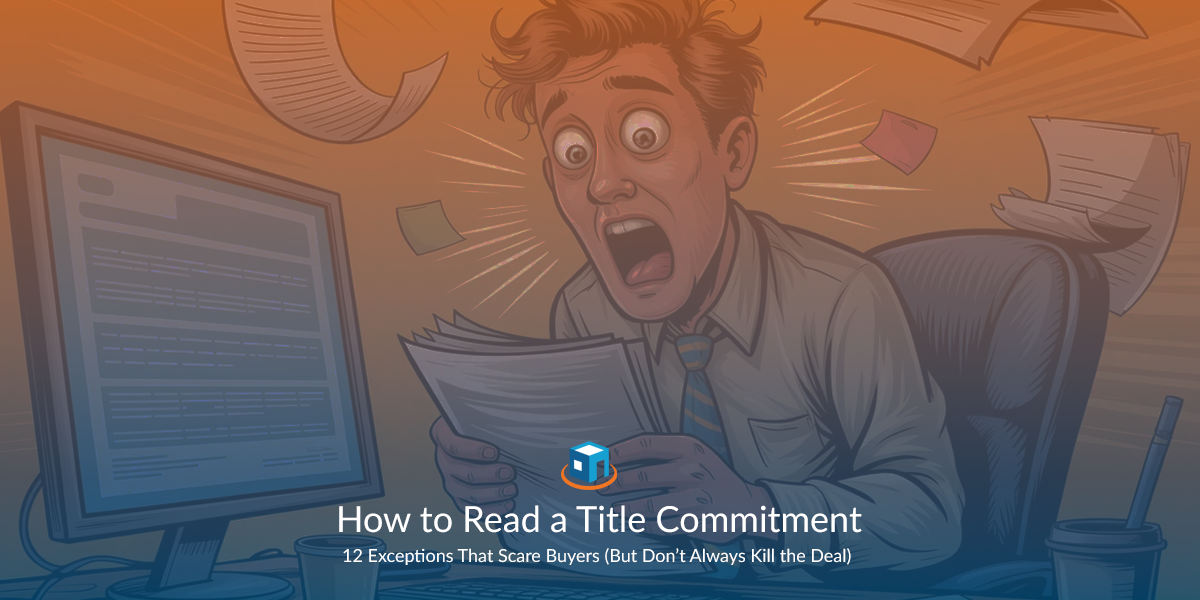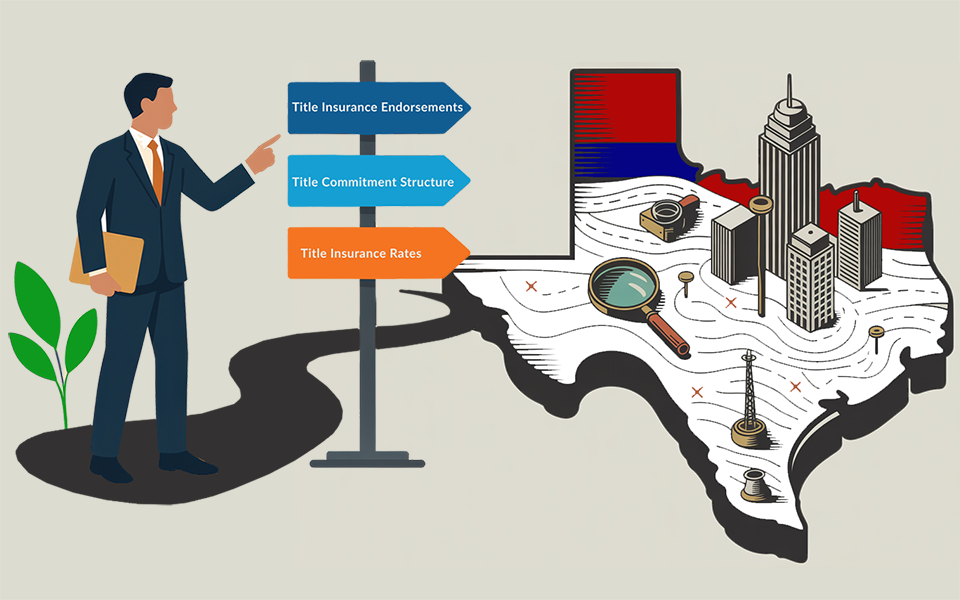December 22, 2025
What Happens if a Satisfaction of Mortgage is Not Properly Recorded?

Paying off your mortgage is a major milestone — but the process isn’t truly complete until one crucial document is officially recorded: the Satisfaction of Mortgage.
Unfortunately, this final step is often misunderstood or overlooked, which can lead to significant legal and financial headaches down the line. Let’s break it down.
First Things First: What Actually Gets Recorded?
There’s a common misconception that the mortgage payoff itself gets recorded. It doesn’t. When you’re ready to pay off a loan, the lender issues a mortgage payoff statement — this document outlines the total amount required to fully satisfy the loan.
Once you send the final payment and it’s processed, the lender then prepares and issues a Satisfaction of Mortgage (also called a lien release in some jurisdictions).
This is the document that gets recorded in the public records. It officially releases the lender’s claim (lien) on your property and clears the title.
Why Recording the Satisfaction Matters
If the Satisfaction of Mortgage isn’t properly recorded, the public records will still show an active lien on your property — even if you’ve paid off the loan in full.
That lingering lien can create major problems:
🔒 You Can’t Sell or Refinance Smoothly
Title companies won’t clear the sale or refinance until that recorded lien is resolved. You’ll either be forced to track down the lender and resolve the issue — or worse, delay your closing.
🧾 Your Title Appears “Clouded”
Unreleased liens show up in title searches and can reduce the value or marketability of your property.
⚖️ Legal Disputes & Delays
In some cases, homeowners must hire attorneys or file legal affidavits to force the release — especially if the original lender was acquired, closed, or lost track of records.
💳 Credit Report Issues
While not always directly linked, errors in lien recording can occasionally contribute to credit reporting discrepancies, especially if a loan appears open when it’s not.
Why Does This Happen?
There are several reasons a Satisfaction of Mortgage might not get recorded:
- Lender oversight (especially when loans are sold or serviced by multiple parties)
- Clerical or paperwork errors
- Incomplete or incorrect documents submitted to the county
- Delay in mailing or e-recording the satisfaction
- Lack of follow-up from homeowners or title agents post-closing
How to Fix an Unrecorded Satisfaction of Mortgage
If you suspect your mortgage payoff wasn’t properly recorded:
1. Check Public Records
Contact your local county recorder’s office to search the property’s record. You’re looking for the Satisfaction of Mortgage — not the original loan or the payoff statement.
2. Reach Out to the Lender
Call your lender and request confirmation that the satisfaction was filed. If it wasn’t, ask them to issue and record it right away.
3. Document Everything
Save all communications and get written proof of any action taken. If the lender provides a satisfaction but doesn’t record it, you may need to do it yourself or through your title company.
4. Get Legal Help if Needed
If the lender no longer exists, or you hit a wall, consult with a real estate attorney or your title company. In many states, there are legal remedies (like affidavits of satisfaction or statutory processes) that allow the lien to be released.
Pro Tips to Protect Yourself
- Track your mortgage payoff process from final payment through recording.
- Request a copy of the recorded Satisfaction of Mortgage for your records.
- Follow up with your county recorder’s office 30–60 days after payoff to confirm it's on file.
- Work with a title support team (like Skyline Title Support) that offers post-closing payoff tracking services to ensure all liens are cleared and recorded.
✅ Don’t Let a Missed Recording Derail Your Closing
Paying off a mortgage is a big win — but it’s not the final step. Make sure the Satisfaction of Mortgage is recorded properly to avoid last-minute surprises at the closing table. A little follow-up now can save you from delays, stress, and unnecessary legal work later on.
🏡 Protect Your Property — Follow Through on the Final Step
Clearing your mortgage is only complete when the lien release is officially recorded. Whether you're selling, refinancing, or just safeguarding your ownership, double-checking public records after a payoff is a smart move every homeowner should make.
📄 After the Payoff — Don’t Forget the Paper Trail
A mortgage payoff isn’t the end of the road. Without a properly recorded Satisfaction of Mortgage, your title can still appear encumbered. Stay proactive, stay protected — and make sure your records tell the full story.
Related Posts
How to Read a Title Commitment: 12 Exceptions That Scare Buyers (But Don’t Always Kill the Deal)
If you have ever opened a title commitment and felt your stomach drop when you hit the exceptions, you are not alone. Buyers often see a long ....
January 29, 2026
Mortgage Payoff Letters: The #1 Last-Minute Closing Killer (and How to Prevent Delays)
Waiting on a mortgage payoff letter can derail closing. Learn payoff timelines, common delay causes, and a step-by-step payoff tracking checklist to keep files
January 25, 2026
2026 Title Industry Outlook: Top 10 Trends That Will Redefine Due Diligence and Closings
The title industry is heading into 2026 with more moving parts than at any time in recent memory: rapid regulatory change, deeper fraud risk ...
December 22, 2025
Witchy Titles & Cursed Closings: What Salem’s History Can Teach Us About Real Estate Due Diligence
In 1692, the town of Salem, Massachusetts descended into chaos. Fueled by fear, rumors, and suspicion, dozens of people were accused of witchcraft and ...
December 22, 2025
Title Under Siege: A First Look at Our New Guide to Deed Fraud and Seller Impersonation
Seller impersonation, in particular, is on the rise. In these cases, a scammer poses as the property owner—usually targeting vacant land, rental...
December 22, 2025
Real Estate Due Diligence Checklist: 9 Hidden Costs That Kill Closings
Imagine this: A $3.2 million Miami Beach home sale implodes because of a $127 unpaid utility lien that no one caught in time. Absurd as it sounds ...
December 22, 2025
How Can Large Title Companies Thrive in Volatile Times?
When mortgage rates climbed to 23-year highs in late 2023, one national title insurer watched transaction volume plummet 45% over eight weeks yet ...
December 22, 2025
Summer Real Estate: Keep Closings Cool When the Market Heats Up
Summer signals one of the busiest times in real estate, especially in Florida, as well as in fast-growing markets like Texas, Arizona, and ...
December 22, 2025
Navigating Florida’s Title Regulations for Small Title Agencies
Running a small to mid-sized title agency in Florida can feel like juggling flaming torches—there’s licensing, escrow accounting, audits, data security ...
December 22, 2025
Top Mistakes When Ordering a UCC Search
UCC Searches are crucial in risk assessment and due diligence in commercial lending and secured transactions. Yet despite their importance, we have ...
December 22, 2025
The Title Pro's AI Companion: Using Skyline's SmartTitle Assistant
How much time did you spend drafting repetitive client emails today? Our average title professional saves 5+ hours weekly using SmartTitle Assistant™ ...
December 22, 2025
Navigating Market Volatility: What Title Professionals Need to Know Now — and What's Ahead in 2025
In today's real estate landscape, the only constant is change. Fluctuating interest rates, economic uncertainty, and shifting regulatory policies have ...
December 22, 2025
Generating New Business for Title Companies in a Competitive Market
The title industry is transforming. Increased competition, technological advancements, and shifting consumer expectations are challenging traditional ...
December 22, 2025
Spring Cleaning for Your Property Title: How to Refresh Your Real Estate Records
Millions of real estate transactions are delayed or fall apart each year due to title issues that could have been prevented. In fact, a recent study ...
December 22, 2025
Top Strategies to Prevent Quiet Title Issues
Quiet title disputes are a serious concern for real estate professionals, as they can disrupt transactions and create uncertainty around property ownership ...
December 22, 2025
Title Services for New Construction: What Builders and Developers Need to Know
The construction of a new home or commercial property is an exciting and ambitious project, but it comes with more than just design and building ...
December 22, 2025
Will AI Agents Replace Title Professionals? The Truth About Automation
Artificial intelligence (AI) has evolved beyond simple data analytics and chatbots. Today's AI "agents" can interact with web browsers, gather and analyze ...
December 22, 2025
10 Reasons Why Skipping a Land Survey Can Be Costly
A land survey might seem like an unnecessary expense, especially if the property has been owned for years without any issues. However, skipping this step ...
December 22, 2025
Title Industry 2.0: Harnessing AI, Data, and Cybersecurity for a Resilient Future
The title industry is at a crossroads. Traditional methods that have served us well for decades now face mounting challenges in an increasingly ...
December 22, 2025
How Title Services Impact Mortgage Underwriting Timelines
In the world of real estate, the journey from application to closing is filled with numerous moving parts. Among these, title services are a crucial yet ...
December 22, 2025
How Title Companies Can Meet Tight Deadlines Without Sacrificing Quality
In today's fast-paced real estate environment, speed is crucial. Title companies often find themselves in high-pressure situations where they must juggle ...
December 22, 2025
5 New Year's Resolutions for Title Companies in 2025
As 2025 kicks off, the title industry is moving faster than ever. With new technologies, shifting customer needs, and more complex regulations, there’s ...
December 22, 2025
How to Explain Title Insurance to Your Clients: A Real Estate Agent's Guide
Explaining title insurance isn't always straightforward, but with the right approach, it can become a valuable teaching moment for your clients. Picture this ..
December 22, 2025
The Hidden Complexities of Property Title Searches
You've found your dream home. The price is right, the location is perfect, and you're ready to sign on the dotted line. But before you do ...
December 22, 2025
What’s Next for the Title Industry? Key Trends for 2025
The title industry is at a pivotal moment, with 2025 shaping up to be a year of significant transformation. From groundbreaking technologies like blockchain ...
December 22, 2025
Commercial Property Title Due Diligence: Going Beyond the Basics
The landscape of commercial property title due diligence has transformed dramatically over the past three decades. Gone are the days when a basic title ...
December 22, 2025
Navigating the Cyber Minefield: A Title Professional's Complete Guide to Phishing Defense
The title industry is a prime target for cybercriminals, and phishing is one of the most common threats that title professionals face today. Imagine this ...
December 22, 2025
Elevating Your Title Company to New Heights - A Blueprint for Growth
Let's be honest – growing a title company isn't what it used to be. Gone are the days when simply maintaining the status quo was enough to ...
December 22, 2025
This Halloween Avoid Real Estate Nightmares: 5 Spooky Title Issues That Can Haunt You
Buying a new home is exciting, but not all surprises are welcome. Some title issues can be like ghostly figures lurking in the shadows ...
December 22, 2025
How to Overcome Common Title Operations Challenges and Boost Efficiency
Running a title company means you’re a key player in the real estate world, making sure property transactions go smoothly and securely. But, we get it ....
December 22, 2025
Understanding Municipal Lien Searches: A Complete Guide
Imagine this scenario: You've discovered an incredible property, yet as the closing date approaches, an unsettling surprise reveals itself—a municipal lien...
December 22, 2025
Wire Fraud : Proven Defense Tactics for Title Professionals
Wire fraud is a rapidly growing threat in the real estate industry, with fraudsters becoming more sophisticated and aggressive in their ...
December 22, 2025
Preparing for August 17th: Essential Information on the NAR Broker Commission Changes
The real estate market is about to undergo significant changes as new commission regulations take effect on August 17. These changes ...
December 22, 2025
Maximize Efficiency in Your Title Business with AI
Integrating AI into title businesses can significantly enhance efficiency, accuracy, and customer service. By automating routine tasks, improving...
December 22, 2025
The Importance of Land Surveys in Property Transactions: What You Need to Know
Boundary surveys are essential in property transactions to accurately define property lines, identify encroachments, and resolve disputes. Conducted ...
December 22, 2025
Summer Selling Season: Essential Steps for Real Estate Pros to Ensure Smooth Transactions
Essential steps for real estate professionals to ensure smooth transactions during the bustling summer selling season include preparing properties, ...
December 22, 2025
Recent Posts









.png)






































